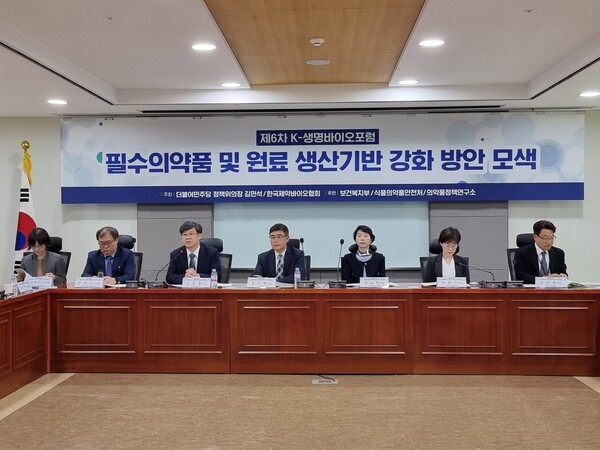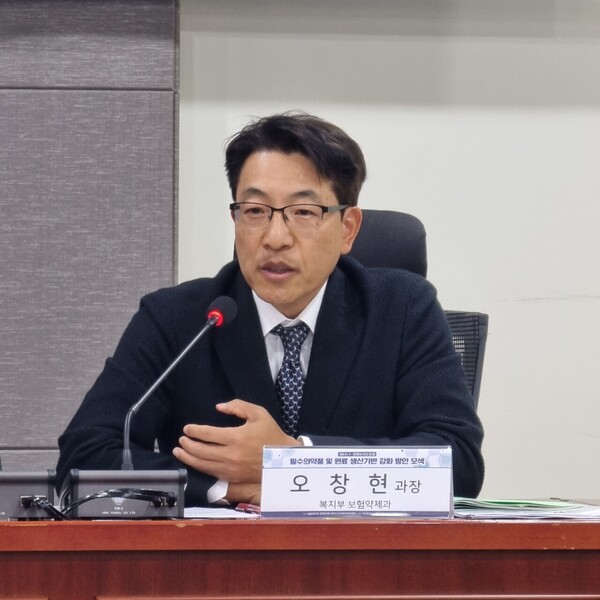The biopharmaceutical industry has called for the government to provide more support for raising self-sufficiency rates of medical materials and essential drugs.

Industry executives made the call in the sixth K-Life & Bio Forum, which sought ways to strengthen the localization of essential medicines and active pharmaceutical ingredients(APIs) at the National Assembly on Wednesday. Rep. Kim Min-seok of the opposition Democratic Party of Korea and the Korea Pharmaceutical and Bio-pharmaceutical Manufacturers Association (KPBMA) co-organized the forum.
“The government has announced many policies for the stable supply of essential national drugs, but the industry thinks they remain insufficient,” said panelist Yu Ki-woong, managing director at Dongkook Pharmaceutical. “We request the government to exempt the submission of some data or submit them later if it can secure sufficient safety and efficacy in licensing essential drugs.”
Eom Seung-in, a director at KPBMA, called for adding essential drugs to the government’s national strategic technology and general APIs to new growth and source technology to provide tax benefits for them under the Special Taxation Act.
He also proposed to extend the preferred treatment period of finished drugs using in-house synthetic materials by allowing them to be traded at 68 percent of original price tags from the current one year to a maximum of five years.
“There are no policies subsidizing R&D and facility investments by domestic API makers,” Eom said. “Domestic API manufacturers need to invest in plants and equipment to advance to foreign markets.”
In response, Ahn Young-jin, director of the Medical Product Policy Division at the Ministry of Health and Welfare, said, “We will consider including the exemption of some data in licensing essential drugs in our Regulatory Reform 2.0 Plan currently under preparation.”

Oh Chang-hyeon, director of the ministry’s Pharmaceutical Insurance Division, said, “Currently, the application for essential national drugs are limited to twice a year, but the government is trying to improve the system by allowing application throughout the year to resolve the supply bottleneck problem more flexibly.”
In response to the association’s request for extending the preferred drug pricing period, Oh said, “Most of the homemade products are likely to be generics. So if we extend the preferred treatment to five years, the price reversal might occur between generic and original drugs.”
According to Ahn Myeong-su, an official at the Korea Orphan and Essential Drug Center, who presented the subject, the self-sufficiency rate of APIs stood at a mere 24.2 percent in 2021. It even fell to 16.2 percent in 2019. Therefore, Ahn presumed the domestic manufacturing ratio might be lower than the official rate.
“Although some drugs are registered with the Drug Master File (DMF) of the Ministry of Food and Drug Safety, they are often not manufactured domestically,” Ahn said. “Even if they are made at home, they import intermediary materials from abroad. Therefore, a more thorough investigation is needed to grasp domestic production.”
Park Sylvia, a researcher at the Korean Institute of Health and Social Affairs, also said, “As the world underwent the Covid-19 pandemic, even advanced countries like the U.S. and Europe have come to realize that reliance on foreign countries for the supply of drug products weakens their public health as well as the need to raise self-reliance rate of APIs and finished drugs and conduct overall examination and take actions to enhance the stability of national drug supply networks."

